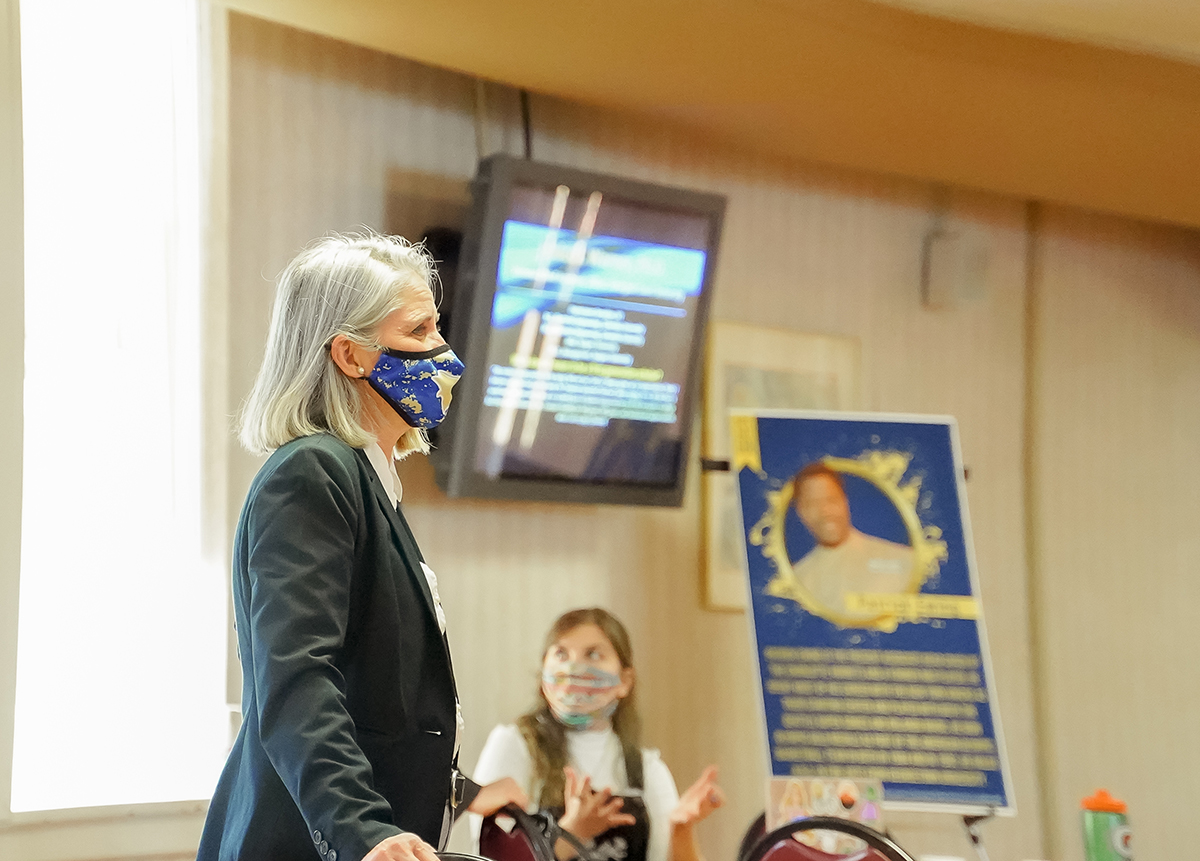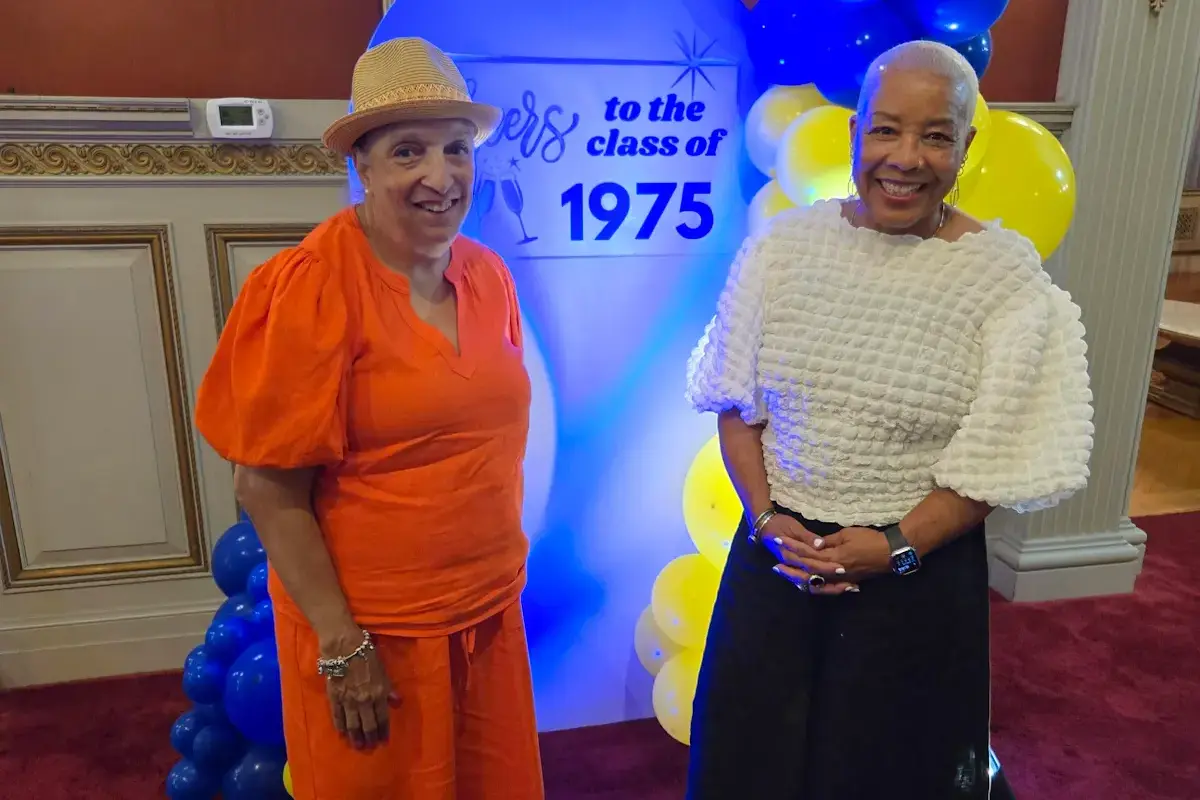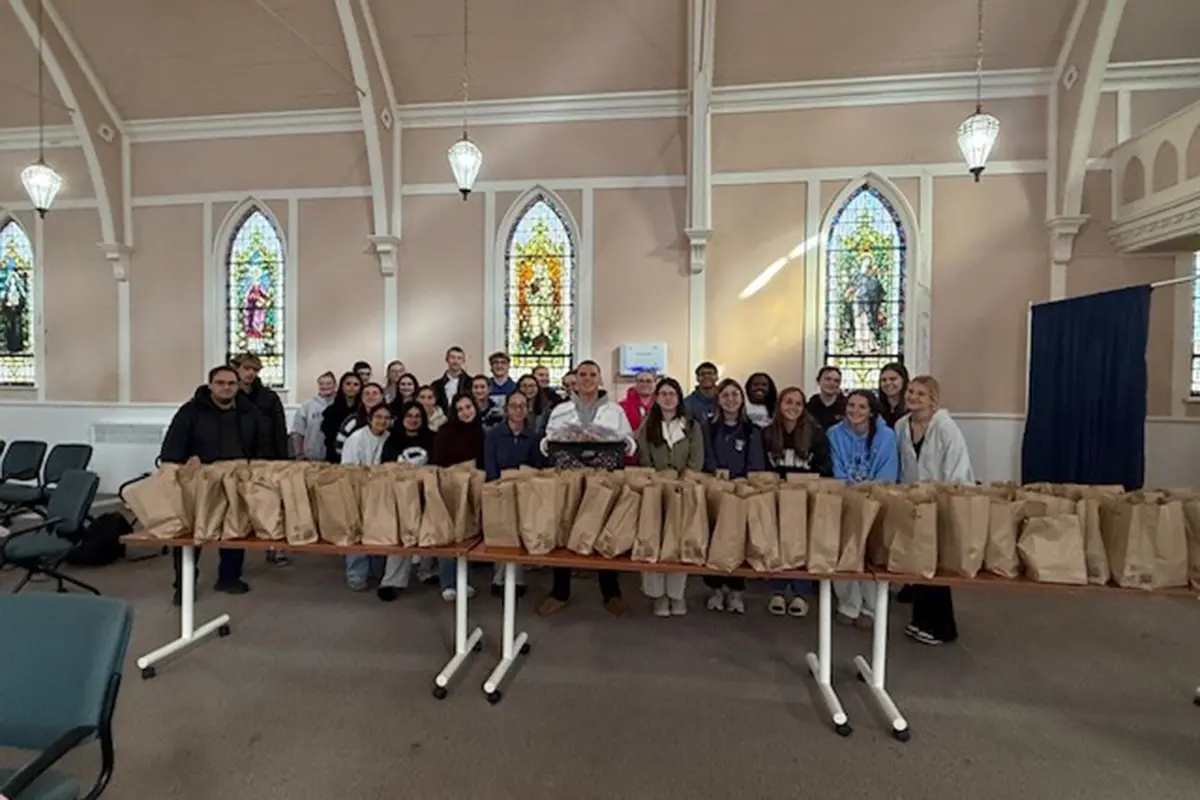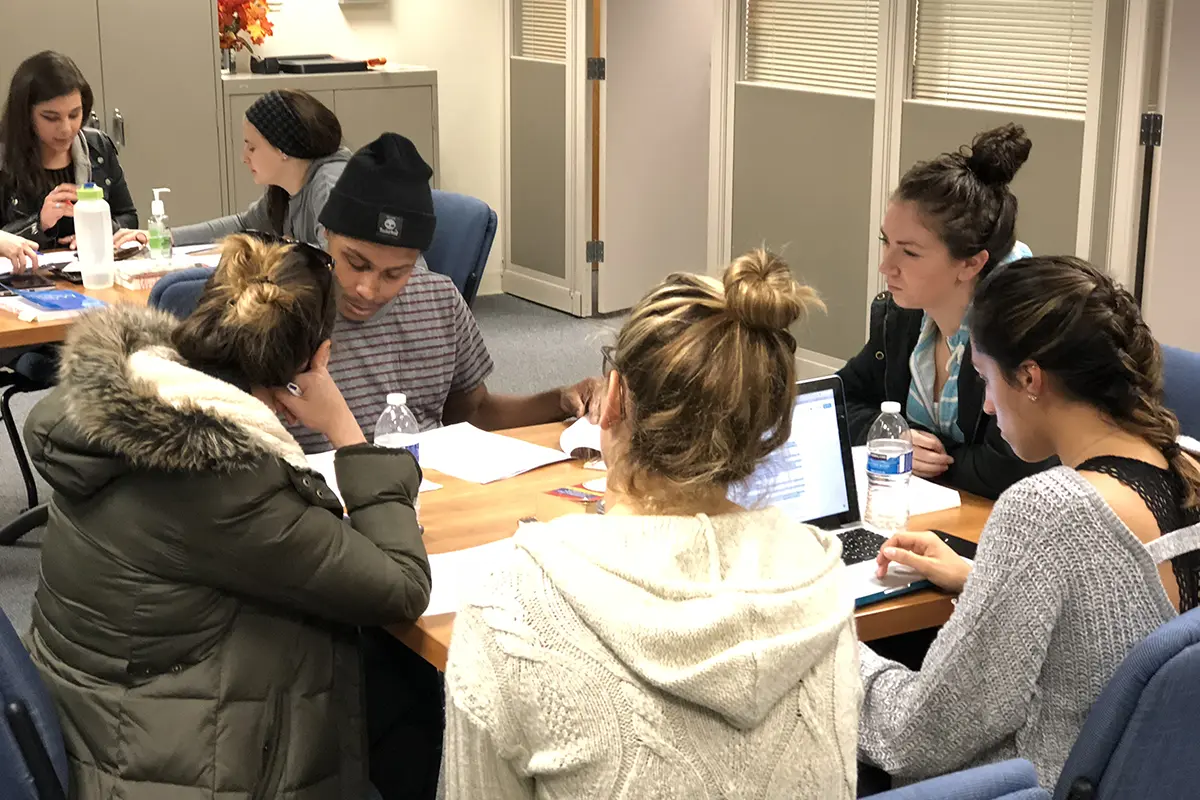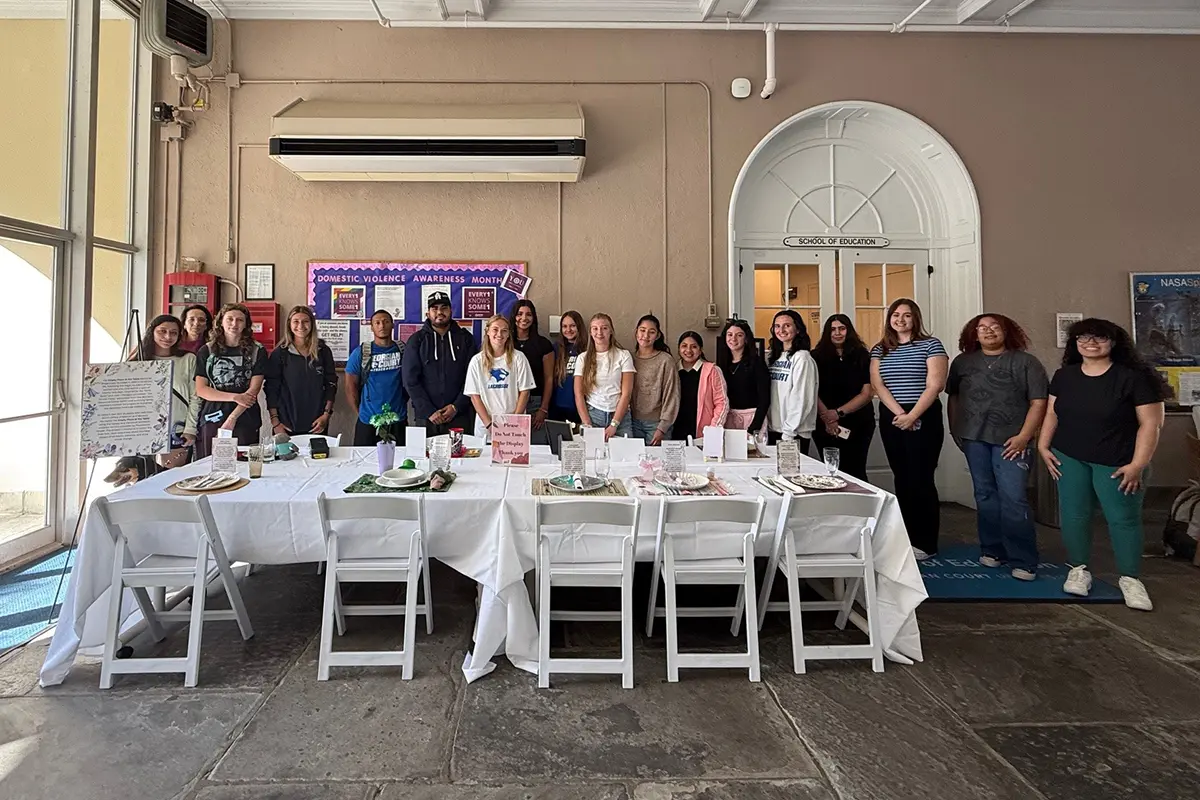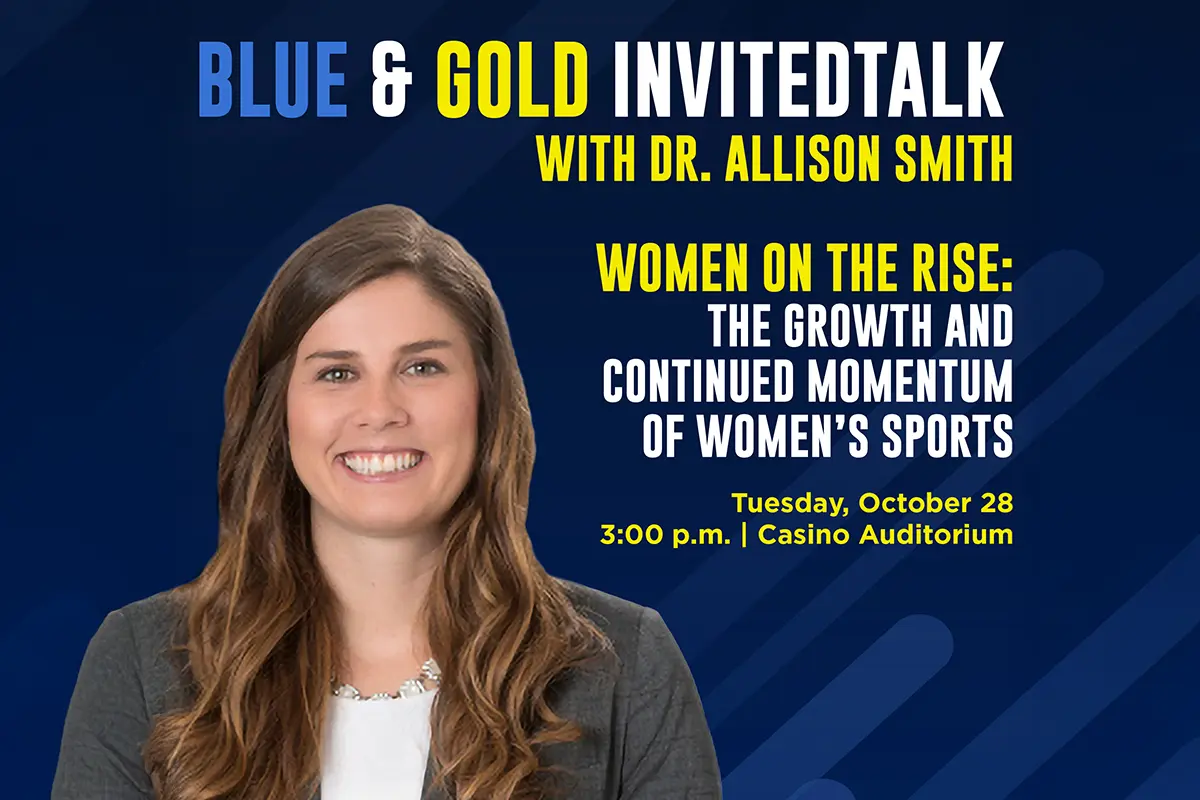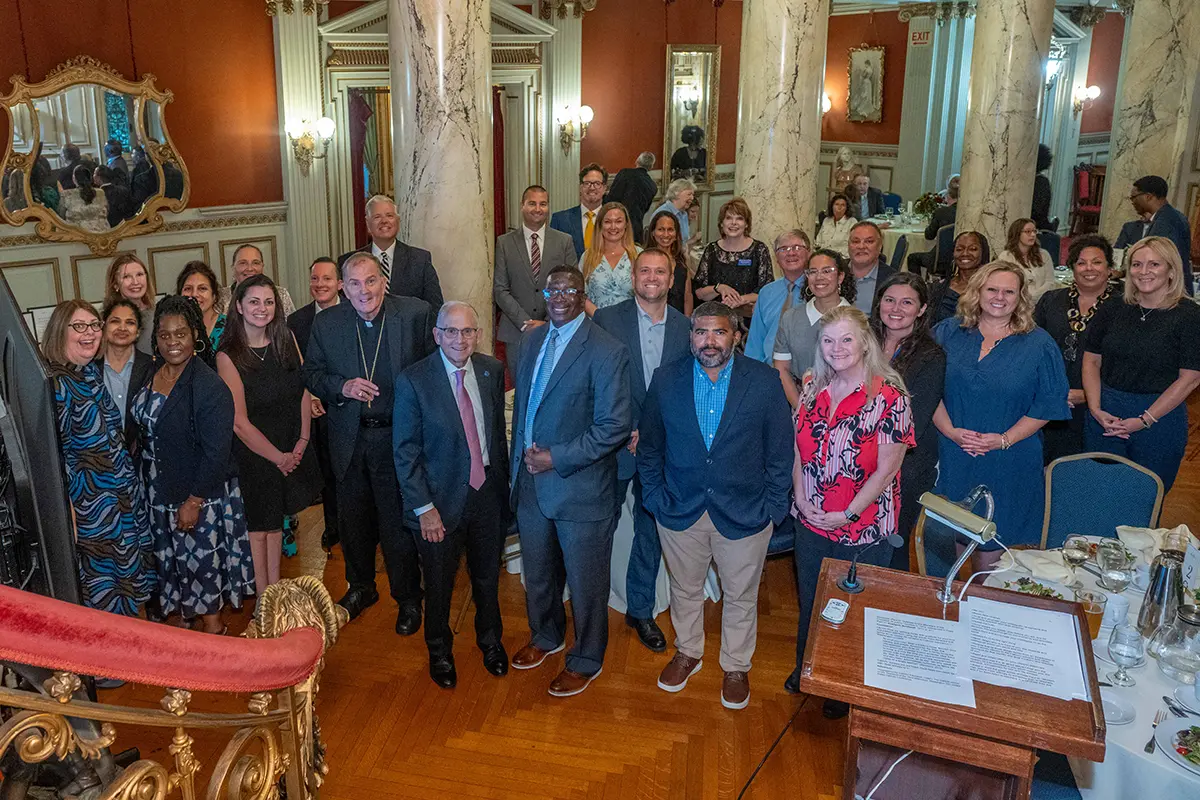Provost Janice Warner, Ph.D., opens the first-generation student celebration on November 18.
Being a first-generation college student is a huge milestone not just for students, but also for their families, according to several speakers who recently participated in Georgian Court University’s celebration of first-generation students. Not every journey is alike, they said, but they all share some things in common: a high value in education, an understanding of its overall benefits, and charting new territory—a move that takes both being bold and being brave.
“It was heartwarming to witness our faculty, staff, and students come together to share their journeys as first-generation college students,” said Danielle Lamb, director of TRIO–Student Support Services, who was joined at the podium by Joy Smith, Ed.D., one of the university’s chief diversity officers and director of GCU’s Educational Opportunity Fund program.
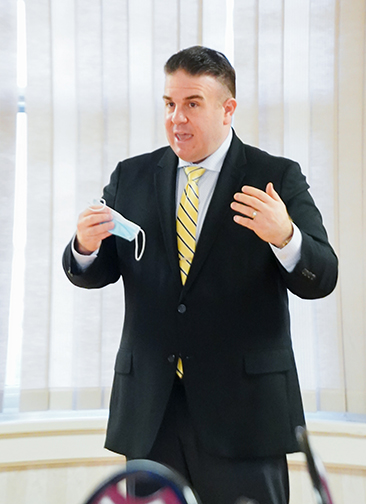
“As a proud first-gen myself, I understand the level of determination and resiliency it takes to be successful,” said Mrs. Lamb. “The GCU community provides the support and resources necessary to help our first-generation scholars achieve their college dreams.”
The November 18 celebration included students, faculty, staff, and alumni who shared their personal experiences. The event was hosted by TRIO–Student Support Services, a federally funded program that provides various services to aid students in academic achievement and personal success. During the 2020–2021 academic year, 39 percent of full-time students at GCU were first-generation.
First-Generation Students Forge Ahead
Alfred Mancuso, Ph.D., was a first-generation student and is currently a professor in the Department of Psychology and Counseling in the GCU School of Arts and Sciences. He emphasized the importance of asking for help.
It’s okay to not know, he said, especially given that many parents have no prior experience to help guide their children during the application process. “First-generation students have no roadmap,” as Dr. Mancuso puts it. He shared that he is all too familiar with making mistakes—like enrolling in the wrong campus of St. John’s University when he started college— but noted that you can correct them.
“It took a lot of hard work and swallowing that pride,” he added. “You have to navigate a part of the world you are not familiar with.” He encouraged other first-generation students to work hard and take advantage of the programs offered.
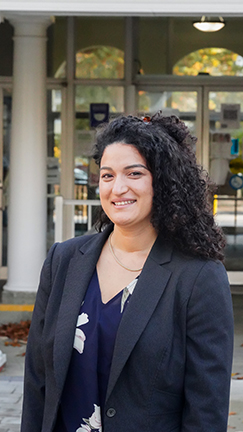
According to Elizabeth Estell, GCU assistant director of residence life, the hardest part of being first-generation is that “you don’t know what you don’t know.” A graduate of The Ohio State University, she navigated without a support system because she didn’t know of any being offered. Ms. Estell had to figure it out as she went and figure out who to call when she needed help. Her advice to other first-generation students? “Find someone to connect with that will support you and push you.”
Federal investigator Awilda Hernandez ’11, who earned a GCU degree in criminal justice, shared that she has “broken generational poverty within her family,” and every degree she earned—including an M.A. from American Military University and an Ed.D. from Concordia University—was a huge milestone for her family.
She struggled during her first year of college, and found herself “woefully unprepared and academically behind.” She discussed her wide range of experiences from the time she entered Georgian Court through joining the military after college and recently earning a doctoral degree. Her dissertation research demonstrated how a child’s socioeconomic status can directly affect their academic progress.
Dr. Hernandez said she is “so proud to be a first-generation college student because I have broken the mold, broken barriers, and continue to defy the odds and challenge the status quo.” She also faced the similar experience of being terrified to ask for help, but once she connected with professionals specializing in helping first-generation students, they introduced her to many opportunities available through higher education.
“Through my academic and professional journey, it is always important for me to remember where I came from, why I am here, and where I am going,” said Dr. Hernandez.
Story by Alycia Bardon ’22, a digital communication major at Georgian Court University. Photos by Joshua Tinto ’20, ’22.

